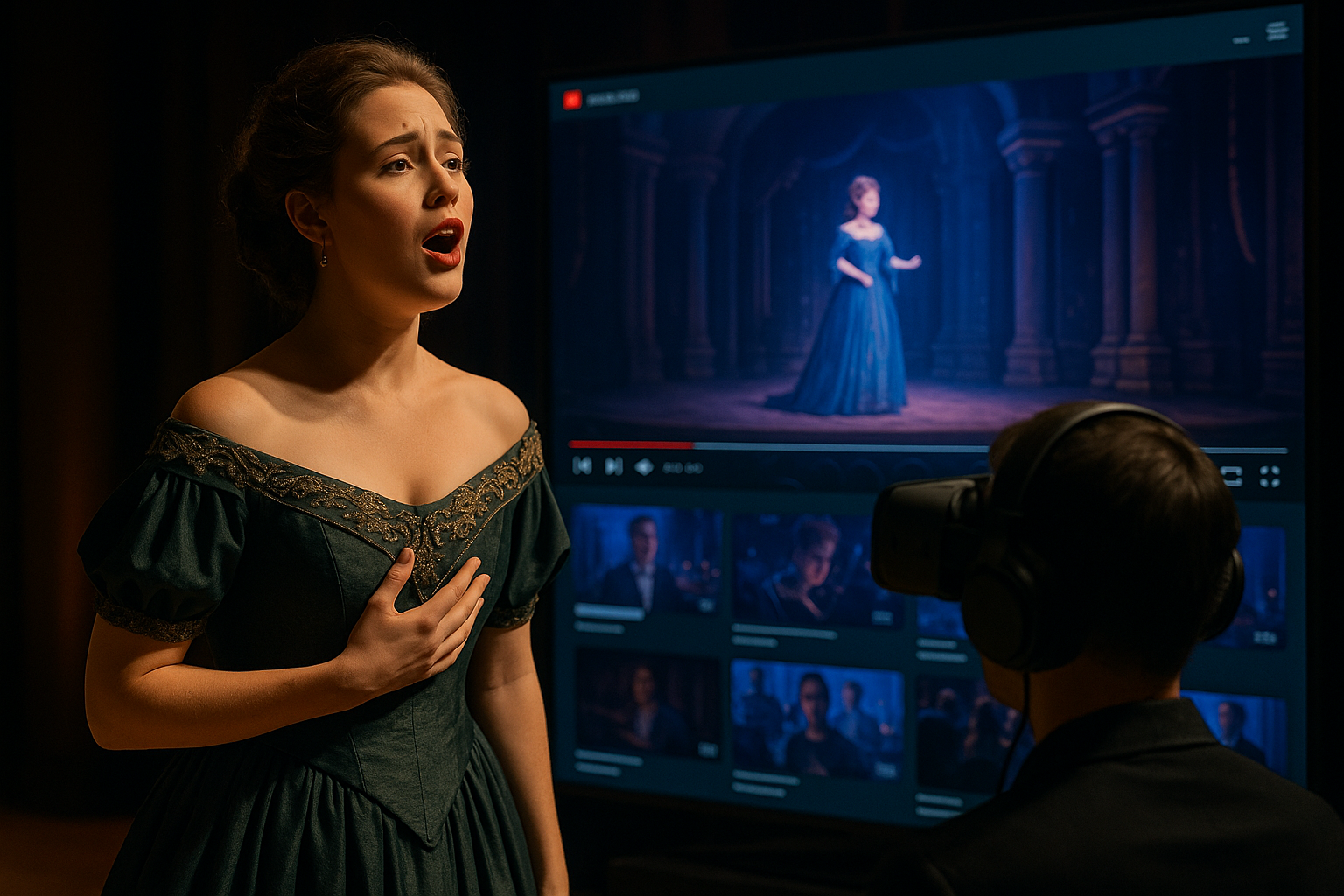Reimagining Opera in the Digital Age: A New Chapter of Accessibility and Innovation
Introduction: Opera, the grand spectacle of music, drama, and visual art, is undergoing a digital revolution. From live-streamed performances to virtual reality experiences, this article explores how technology is not only reinventing opera for a new generation of audiences but also challenging the traditional conventions of this timeless art form.

A Historical Overview of Opera
Opera, which translates to ‘work’ in Italian, was born in Italy around the late 16th century during the Renaissance period. Its synthesis of music, drama, and visual arts was revolutionary and soon spread across Europe, creating a rich and varied tradition. Over the centuries, opera has evolved and diversified, reflecting changing tastes, societal norms, and technological advancements. From the grand opera of the Romantic period to the experimental works of the 20th century, opera has consistently reinvented itself, maintaining its relevance and appeal.
The Advent of Digital Opera
In recent years, the digital revolution has begun to impact opera, opening up new possibilities for creativity and accessibility. Live-streamed performances have made opera accessible to a global audience, breaking down geographical and financial barriers. Digital platforms like The Metropolitan Opera’s ‘Met Opera on Demand’ and the Royal Opera House’s ‘Stream Opera’ offer an extensive catalog of performances, available at the click of a button.
The Technological Impact on Opera Production
Digital technology is also transforming the production of opera. Virtual reality (VR) and augmented reality (AR) are providing new tools for storytelling, while digital set designs offer unprecedented levels of flexibility and creativity. The 2016 production of ‘The Magic Flute’ at the Komische Oper Berlin, for example, utilized animation and video projections to create a fantastical world that would have been impossible with traditional stagecraft.
Reception and Critique
The digitization of opera has been met with both excitement and skepticism. Critics argue that the digital experience lacks the visceral impact of a live performance, while others fear that technology may overshadow the music and drama at the heart of opera. However, many have praised the increased accessibility and innovation that digital technology offers. Audiences have grown, and younger demographics are being attracted to this traditionally ‘elite’ art form.
The Future of Digital Opera
As technology continues to evolve, so too will digital opera. The possibilities for immersive, interactive experiences are vast, and as the pandemic has shown, digital platforms offer resilience in uncertain times. While the digital experience will never replace the magic of a live performance, it is clear that digital opera is here to stay, offering a new chapter of accessibility, creativity, and innovation in this age-old art form.
In conclusion, while opera has always been a chameleon, adapting and evolving with the times, the digital age presents unique challenges and opportunities. As we navigate this new landscape, it is crucial to maintain a balance between innovation and tradition, ensuring that opera remains a vital and relevant art form for generations to come.




